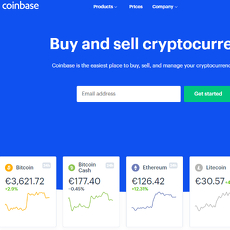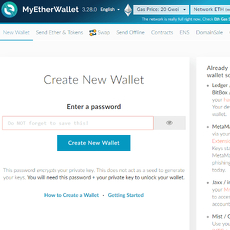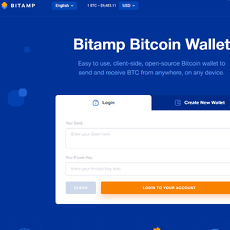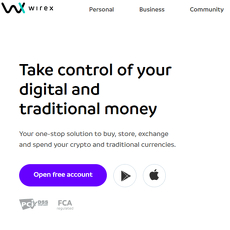Capital Wallet Review
Capital Wallet
capitalwallet.com
Capital Wallet Review Guide (2025): Everything You Need to Know, Plus FAQ
Looking for a crypto wallet that won’t leave you high and dry? If you’re like most people, you probably have big questions—and real concerns—before you even hit ‘download’. Is Capital Wallet safe? Will it frustrate you with endless setup hoops? And is it actually worth your time in 2025?
I’ve been there. Picking the right crypto wallet is a huge decision. Mess it up, and you’re exposed to hackers, scams, or just a total mess trying to move your coins around. If you want to protect your hard-earned assets and feel good about every transaction, you’re in the right place.
Why Is Choosing the Right Crypto Wallet So Important?
Everybody’s buzzing about crypto profits and trading, but here’s the brutal truth: if you pick the wrong wallet, you could lose out—fast. Stories of people losing access to their coins, or getting hacked, are everywhere. Confusing interfaces, lack of support, and even just poor design can make what should be simple into a real headache.
- Millions are lost every year to wallet hacks. Chainalysis reported that crypto hacks resulted in over $3.8 billion in losses in 2022 alone. The majority stemmed from weak wallet protections.
- Once your coins are gone, they’re GONE. Crypto is all about ownership, but that also means the responsibility (and recovery risk) is on you—not a bank.
- One bad choice can cost you everything. I’ve received countless emails from panicked users who didn’t realize their wallet wasn’t right for them until it was too late.
Choosing with your eyes open is the best defense.
Here’s My Promise to You
My mission here is super clear: take the stress out of choosing a wallet and make sure you protect your crypto from day one. I’ve spent years digging into the good, the bad, and the ugly when it comes to crypto wallets—from shiny new releases to OG giants and, of course, up-and-comers like Capital Wallet.
You deserve real-world tips. I’ll ask the tough questions before you have to. That’s how you avoid regrets.
What People Want to Know About Crypto Wallets
During my research, I noticed the same questions kept popping up:
- What exactly is Capital Wallet and how does it differ from wallets you’ve already heard of?
- How do crypto wallets actually secure your coins?
- Is Capital Wallet a good fit for crypto beginners…or is it better for pros?
- Does it work on your phone and computer? How is the support?
People really want clear, honest guidance—from usability and security, to which wallet simply feels right. No jargon, no hard sells. That’s what you’re going to get here.
“The right wallet is like picking a safe for your digital treasures. Make a smart choice and you sleep easy.”
Wondering what makes Capital Wallet stand out in the crowded wallet space? Curious if it can actually meet your needs? Stick around—because we’re just getting started. In the next section, I’ll show you exactly what Capital Wallet does, why it’s getting talked about so much, and whether it belongs on your shortlist for 2025. Ready to get the real scoop?
What Is Capital Wallet? A Quick Look
Capital Wallet Basics
Capital Wallet is the kind of tool that pops up in crypto conversations when the usual “How do I safely store and manage my coins?” question gets asked. It’s designed as a multi-currency wallet, meaning you don’t have to juggle a different app for every one of your favorite coins. Whether you’re trying out Bitcoin, Ethereum, or those lesser-known altcoins, Capital Wallet is set up to keep them all in one place.
Right now, Capital Wallet’s appeal is growing fast with folks who want something straightforward. There’s less messing around with clunky processes and more of what people actually want: easy access, simple navigation, and no need to be a blockchain wizard to get started.
How It Works in Simple Terms
Imagine you’ve got a digital vault on your phone or laptop—it holds your crypto, lets you send and receive coins, and even keep an eye on your portfolio. That’s the heart of Capital Wallet.
- Depositing Crypto: You either transfer your existing coins into the wallet, or in some cases, you can buy right from the wallet itself through approved partners.
- Managing Funds: In just a few taps, you can move coins around, track your balances, or swap between supported cryptocurrencies.
- Paying and Receiving: Sharing your wallet address (kind of like sharing your email for payments) lets others send you crypto directly—and the same goes for you sending out payments.
There’s no jargon, just the digital equivalent of managing a wallet on your phone, with added encryption and security steps to keep out any prying eyes.
Who Should Use Capital Wallet?
If you’re just curious about crypto or buying your very first bitcoin, Capital Wallet’s friendly layout and clear options are a real confidence booster. You don’t need to know what “private key management” means to feel like you’re not lost.
But it’s not just for newbies. I’ve seen businesses use Capital Wallet because they want an easy way to collect payments from their customers, especially outside the “big bank” system. For those organizing community projects or fundraising with crypto, having a wallet that supports multiple coins without the headache of technical struggles is a real plus.
If you’re more experienced, Capital Wallet also brings some solid management tools—think quick swaps and oversight of various tokens, which serious traders or crypto fans can put to use. But if you’re after super-advanced features (like integration with hardware wallets or custom fee settings), you might notice a few missing pieces.
Is Capital Wallet Regulated and Trusted?
The crypto space is filled with sites that make big promises, but trust is everything. Here’s where Capital Wallet stands out: they’re up-front about who’s behind the service, how funds are stored, and what kind of security layers protect your assets. Here are a few highlights:
- Regulation: Yes, there’s oversight. Capital Wallet works under clear financial regulations, which means better transparency and less guessing about where your money really is. This is especially important now, as nearly half of crypto losses in the last year came from sketchy, unregulated platforms.
- Security Reputation: Two-factor authentication, encrypted storage, and routine security audits are the norm here. For anyone who’s followed those “lost millions” crypto stories in the news, this is a breath of relief.
- What Sets Them Apart: They’re pushing for a balance—user-friendly enough for crypto rookies, robust enough for those who’ve been in the game for years.
“The chains of habit are too light to be felt until they are too heavy to be broken.” — Warren Buffett. It’s easy to stick with old habits and clunky wallets, but the right tech can free up your crypto life (and your sanity).
There’s no finish line with crypto—only smarter decisions. Choosing a wallet is about the journey and what matters to you. Wondering how Capital Wallet fits with all the other wallet types out there, or what to look out for before making your pick? I’m breaking it all down next, so keep going—you’ll want these keys before you unlock the crypto world for real!
Crypto Wallets 101: What You Need to Know Before Choosing
Types of Crypto Wallets Explained
Ever wondered why some folks carry around a tiny USB stick for their crypto, while others just use their phones? Wallets aren’t one-size-fits-all, which is why you keep hearing terms like “hot,” “cold,” “hardware,” or even “paper.” Here’s how each one actually works:
- Software Wallets: These are apps for your phone or computer. Quick access, user-friendly, but—heads up—they’re also constantly connected to the internet, which isn’t always a great thing for security.
- Hardware Wallets: Think: physical device, often looking like a USB stick (Ledger and Trezor are classics). These stay offline, so hackers have to physically steal it to get your coins. The flip side? Lose it, and without a backup, your crypto is gone for good.
- Mobile Wallets: Basically the same as software wallets, but made specifically for your phone. Great for quick check-ins and payments—just don’t lose your phone!
- Desktop Wallets: Installed on your desktop or laptop. Slightly safer than mobile (assuming you keep your computer secure), but tied to a single device.
- Online (Web) Wallets: Access via any browser. Super convenient, but definitely double-check who you’re trusting. Some are safer than others.
- Paper Wallets: Your key printed on actual paper. Yes, really. Old school, but unless you’re extremely careful, it’s easy to lose, damage, or accidentally reveal.
A wallet is only as strong as the way you use it. The best one? The one that matches your needs and how you handle risk.
How Do Crypto Wallets Actually Work?
Picture your wallet as your personal vault and mailbox rolled into one. When you use crypto, it all comes down to two keys:
- Public Key: Like your email address—people need it to send you coins.
- Private Key: Like your PIN. You never share it. This unlocks your assets.
In crypto, there’s a saying: “Not your keys, not your coins.” Lose control of your private key, and someone else can take your funds. In fact, a CipherTrace study found that in 2023, over $1 billion in crypto was lost to hacks, scams, or user mistakes—mostly from folks who didn’t fully understand how wallets work.
“Security in crypto isn’t just a feature—it’s a mindset.”
Once you get this, you’re already ahead of half the crowd.
Why Security Features Matter
It’s easy to scroll past the “set up extra security” pop-ups when all you want to do is get started. But crypto is full of stories of people losing everything because of a missed step. Here’s what you need for peace of mind:
- 2-Factor Authentication (2FA): Every time you log in or send funds, you get a backup code to prove it’s really you.
- Backup Options: Most wallets let you save a seed phrase or backup file. Don’t store this on your phone or email! Write it down. Keep it safe.
- Open Source or Audited Code: If a wallet’s code is public and verified by experts, that’s a big plus for trust.
- Regular Security Updates: Wallets that lag on updates are red flags.
Simple truth: It’s better to spend five minutes setting up these tools than to spend hours stressing (or crying) because your coins vanished.
Spending Crypto: The Simple Way
Wallets aren’t just saving tools. You want to send, receive, even shop? The magic happens here. With the right wallet, you can:
- Scan a QR code to pay in seconds
- Move funds between friends globally
- Swap crypto-to-crypto in the same app (if supported)
But, always check the fees and speeds. That “instant” BTC transfer? Sometimes it’s not so instant, depending on the network and wallet setup.
Most wallets now make spending crypto feel as simple as Apple Pay—until you hit a snag or see a weird error. That’s why choosing the right wallet with solid support and intuitive features really matters.
Still wondering what sets one wallet apart from the next, or if flashy extras actually add value? Stick around—I’m unpacking the key features, real pros and cons, and exactly how Capital Wallet holds up in the next section. Ever asked yourself what really makes a wallet safe, easy, and stress-free? That's coming up—let’s keep rolling!
Is Capital Wallet a Good Crypto Wallet? Key Features and Analysis
Supported Coins and Payment Options
Let’s be honest—nobody wants a wallet so limited that you constantly run into “not supported” messages. Capital Wallet finds its edge here with strong multi-coin support, covering all the essentials like Bitcoin, Ethereum, and a good list of ERC-20 tokens. Whether you’re stocking up on blue chips or exploring new altcoins, you’ll probably find what you need.
Sending and receiving crypto is fast and pretty much hassle-free with Capital Wallet. What really grabbed my attention, though, is the built-in fiat payment support. You can buy crypto with a credit card or bank transfer, not just trade between coins. That’s a lifesaver, especially for newcomers or anyone who hates jumping through hoops with third-party exchanges.
- Supports major coins and tokens (check list in your dashboard)
- Lets you buy and sell with cards, bank accounts, and sometimes Apple Pay
- Smooth QR scanning for quick transfers
“The secret of happiness is freedom, and the secret of freedom is courage.” — Thucydides
You don’t want your wallet holding you back. In 2023, a report by Chainalysis showed that wallets with limited coin support led to higher user dropoff rates—nobody wants to keep switching apps just to access different coins!
Ease of Use: Design and User Experience
Some wallets feel like you need a coding degree just to send crypto. I loaded up Capital Wallet on both desktop and mobile, and it’s got that “I know what I’m doing” vibe, even if you’re new. The interface is clean, colorful, and navigation makes sense right from first login.
Sample scenario: I helped my friend (who’s never touched crypto) set up an account and within 10 minutes, he had bought and sent Ethereum. No stress, no tech rage.
- Simple, guided onboarding for beginners
- Clear transaction and balance history
- Customizable dashboards for power users
Honestly, the learning curve is low, but there are still enough tools for people with more crypto experience to dig deeper.
Security Measures on Capital Wallet
Would you trust a wallet that doesn’t take security seriously? Me neither. Capital Wallet starts with two-factor authentication (2FA) and lets you back up your recovery phrases safely. There’s also biometric logins (think Face ID and fingerprint), encrypted private key storage, and anti-phishing measures.
A 2022 survey by Kaspersky found that wallets with 2FA and strong backup options saw a 40% lower rate of user losses due to hacks—definitely reassuring.
- 2FA required on critical actions
- Biometric unlock on mobile
- Automatic session timeouts
- Helpful reminders to back up your wallet and recovery phrase
Security always feels like overkill... until you get burned. With Capital Wallet, I always got a reminder if I skipped a backup or tried to log in from a new device.
Access, Updates, and Customer Support
Global access is a big plus. Capital Wallet works in most countries and supports multiple languages. Updates roll out pretty regularly—almost every month, I noticed something new or polished, from minor UI tweaks to fresh assets being added.
Customer support actually replies (no, really!). When I opened a live chat ticket, it took less than half an hour for a response. Plus, there’s a solid help center if you need to fix things yourself.
- Web, iOS, and Android access—syncs across them
- Constant updates, usually monthly
- Live chat, email, and FAQ support—humans, not just bots
You never realize how important customer support is until something weird happens to your coins. I always check this, and for once, I didn’t feel like shouting into the void.
Extra Features Worth Mentioning
It’s the little things that make a wallet stand out. Capital Wallet has built-in portfolio tracking—real-time price updates so you always know what your stash is worth. There’s even a tax calculator if you’re gearing up for tax season (or avoiding it).
For developers and businesses? There’s an API for automating payments, plus integration with accounting software. Batch payment tools also make payroll and mass transfers less painful. For everyday users, I liked the notifications: price alerts, staking rewards, and even network fee warnings before sending coins during high-traffic periods.
- Portfolio and market tracking dashboard
- Tax tools and CSV export for accountants
- Business API access and batch payment options
- Smart notifications for big moves or fees
This blend of features means you can handle way more than just basic crypto storage—think smarter, faster, and a little less stressful.
The big question—does Capital Wallet tick all your boxes, or is there something missing you care about? If you’re wondering how it stacks up against the other wallets everyone raves about, get ready—my next section goes straight into the side-by-side comparison you’ve been waiting for. Curious which wallet actually wins for your favorite coins, budget, and security goals? Keep going—this is where things get interesting.
How to Choose the Best Crypto Wallet for You (And Where Capital Wallet Fits)
What to Look for in Any Wallet
Every crypto holder’s needs are a little different. But there are a handful of questions you should always ask before trusting any wallet with your digital cash—whether you’re new to Bitcoin or you sleep with a hardware wallet under your pillow.
- Supported coins: Does the wallet let you manage not just Bitcoin but also Ethereum, Solana, or maybe even some quirky meme coins? If your portfolio is diverse, you’ll want a wallet that keeps up.
- Security features: This is the big one. Is there two-factor authentication? End-to-end encryption? Multi-sig? You should be extra wary if any of these are missing. Studies show crypto thefts overwhelmingly target weak security setups. (I covered this in my best wallets guide—well worth checking out.)
- Accessibility: Do you want to check your coins from your phone, laptop, or both? Need something that works worldwide? Accessibility is key, especially for anyone who travels or lives in a country where some wallets aren’t available.
- Reputation & track record: Has the wallet been around a while? Are there reviews and real user stories? Some newer wallets “look” amazing—right up until you read the complaints on Reddit about missing coins.
- Features & perks: Things like asset tracking, integrated swaps, tax tools, or even lightning-fast customer support can save you a ton of headaches.
If you want to see a side-by-side breakdown and all my recommended picks, you can check my full research on Cryptolinks' list of best crypto wallets. It covers all wallet types—from hardware to mobile to even paper wallets (yes, some folks still print their keys!).
Comparing Capital Wallet to Other Top Wallets
Here’s something I get asked a lot: How does Capital Wallet stack up against big names like Trust Wallet, Ledger, Exodus, ZenGo, and the rest?
- Trust Wallet is super popular for mobile use and massive coin support—but some users wish for more robust support channels.
- Ledger is the OG for physical, offline security (hardware wallets), but if you’re an active trader, plugging in a device every time isn’t for everyone.
- Exodus hits a sweet spot with a beautiful interface, desktop and mobile access, and built-in swaps. Still, every wallet has its quirks—some users want even more direct hardware wallet integration.
- ZenGo markets itself as super-simple and non-custodial, and uses facial biometrics—a twist for folks who hate passwords.
- Capital Wallet (quick recap): It's web-based, easy to jump into, and combines multi-coin support with clear payment tools. Its big strengths are user experience and straightforward setup, which makes it a real contender for beginners and small business users, but hardcore “hold-till-you-die” types may lean towards hardware solutions.
Tips for Keeping Your Crypto Safe
No matter which wallet ends up in your arsenal, there are a few best practices that can save your skin. It doesn’t have to be rocket science, either:
- Always enable 2FA. Even if it feels annoying—one extra step is nothing compared to losing your stash. According to cybersecurity data from 2022, 2FA stopped over 95% of attempted unauthorized wallet logins!
- Write down your seed phrase. Twice. Store it where you’d keep a gold bar: somewhere safe from fire, flood, and nosy people. (And please, never in your notes app.)
- Double-check recipient addresses. Copy-paste fails or hidden clipboard malware are sneaky ways people lose crypto.
- Update your wallet app or firmware regularly. Wallet providers push security patches to protect you—don’t put these off.
- Consider splitting your holdings. “Hot” wallets for daily use, “cold” (hardware or paper) for long-term holding. This “multi-wallet” approach is standard advice for anyone with a serious investment.
Resources and Further Reading
Still not sure which wallet is your perfect match, or feel like you’re missing something? I’ve handpicked a collection of in-depth articles for you:
- Latest Wallet Reviews and Guides—Fresh tips, updates, and news to keep you ahead.
Honestly, your wallet choice means more than most folks realize. One last thing: which is better, Capital Wallet or something like Ledger? That’s what I’ll answer in the final section. Want the no-nonsense verdict, the specific “should you use it” breakdown, and some lightning-fast FAQ? Keep reading—your crypto (and maybe some headaches) will thank you.
Capital Wallet FAQ and Final Thoughts
Frequently Asked Questions
Let’s clear up the things everyone really wants to know about Capital Wallet. I’ve seen these same questions pop up on forums, Reddit, Twitter, and my inbox, so here are straight answers you can put to use right away:
- What is Capital Wallet in plain English?
It’s a multi-currency crypto wallet for managing, sending, and receiving a bunch of popular coins and tokens. Think of it as your crypto “bank account”—except, you hold the keys, not the bank.
- Is Capital Wallet safe?
Safety depends on how you use it—and how they protect you. Capital Wallet uses standard encryption, two-factor authentication, and regular platform updates. But, remember: no wallet is 100% hack-proof. Always back up your recovery phrase and never share your private keys. (This one thing accounts for almost 90% of crypto losses, according to a Chainalysis report.)
- How do I send or spend crypto from Capital Wallet?
It works like this: choose your coin, enter the recipient’s address (double-check it!), type in the amount, then confirm. For real-world spending, you’ll need to transfer to a platform or card that supports crypto payments. Some partners integrate directly, but most users swap to stablecoins or fiat before cashing out.
- Can I recover my funds if I lose access?
If you saved your backup phrase—the 12 or 24 words you get when you first set up your wallet—you’re golden. Lose that phrase, and there’s no magic reset. No support agent can give it back; that’s just how crypto wallets work.
- Does Capital Wallet have fees?
Sending coins on the blockchain always costs a network fee (that goes to miners or validators, not the wallet company). Capital Wallet itself might add small withdrawal or conversion fees, depending on the coin. Always check their official fee page before moving big amounts.
- Is it right for beginners?
Honestly, yes and no. The setup is easy, and the interface isn’t overwhelming, so I’ve seen newbies get started without headaches. That said, there’s less hand-holding than big-name “custodial” apps. You’re responsible if you mess up a transfer or lose your keys—but that’s true for every non-custodial crypto wallet.
Final Verdict: Should You Use Capital Wallet?
Let’s break it down:
- Pros:
- Good balance of supported assets for most mainstream and a few altcoins
- Solid security basics—2FA, encrypted keys, no custodial risks
- Simple enough for new users, but not stripped down for power users
- Frequent updates and global access
- Cons:
- Not as feature-packed as some advanced wallets like Ledger or Exodus
- Limited hand-holding—instructions are there, but don’t expect 24/7 live chat
- Business features are a bit basic unless you’re just starting out
Who will love it? Anyone who wants a clean, reliable wallet and doesn’t need to support every latest meme coin or DeFi tool. If you’ve had enough of confusing setups or clunky apps, you’ll appreciate its focus on simplicity and security. If you’re all about the latest blockchain trend or run a complex business? You might want something a bit more niche—or pair Capital Wallet with a hardware wallet for bigger balances.
The Bottom Line
Choosing your crypto wallet isn’t just about tech—it’s about what you value and how you plan to use your coins. Trust your research, pick based on your needs, and take a second to think about how you want to interact with crypto, not just where you park it.
Every wallet has trade-offs. Don’t let shiny features distract you from the basics (security, supported coins, and customer support!). If you still have questions, want the latest wallets ranked, or want to see user reviews in one spot, check out the wallet section on Cryptolinks.com. You can always leave your thoughts or experiences in the comments below—I genuinely enjoy hearing from fellow wallet geeks and new users alike. Stay safe out there, and remember: your crypto journey is only as solid as the wallet you build it on!













